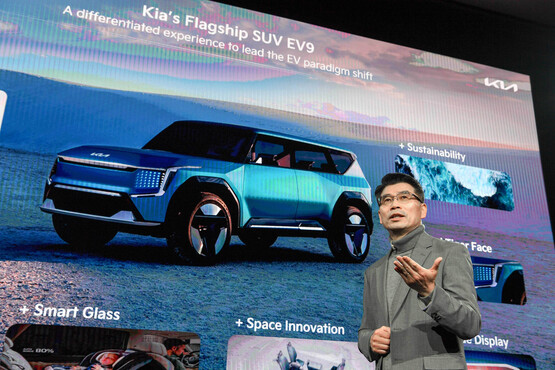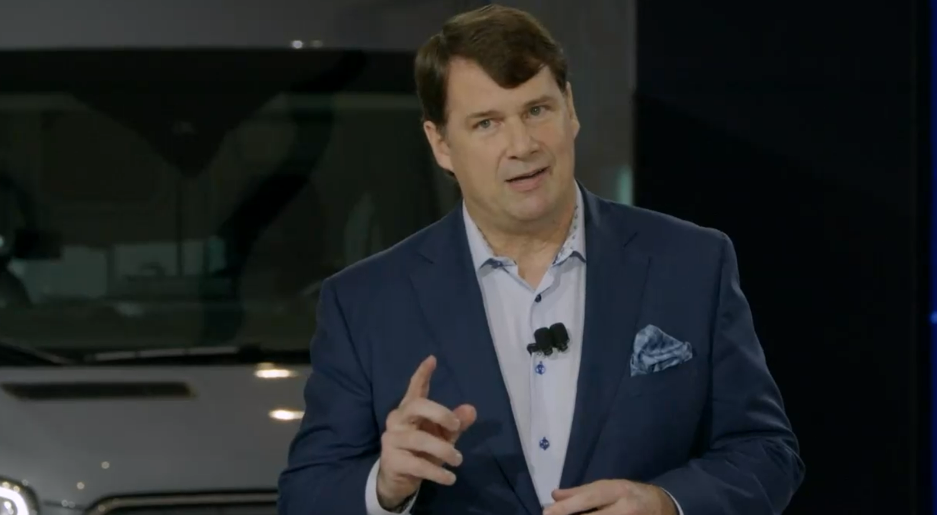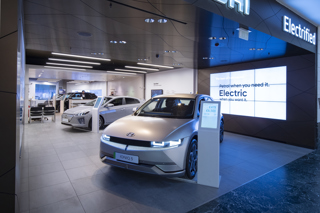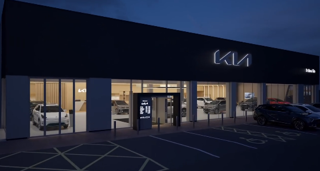Hyundai Kia and Ford have followed Stellantis in spelling out new strategies that will accelerate the development of electric vehicles (EV).
While Hyundai spelled out its move to grow its EV production capacity with new manufacturing facilities, sister brand Kia commitment to launch 14 new electric vehicles (EVs), including two pick-up trucks by 2027, in presentations this week.
Ford, meanwhile, has revealed plans to split its operations into two separate entities, specialising in EVs and internal combustion engines (ICE).
Hyundai Kia and Ford have followed Stellantis in spelling out new strategies that will accelerate the development of electric vehicles (EV).
While Hyundai spelled out its move to grow its EV production capacity with new manufacturing facilities, sister brand Kia commitment to launch 14 new electric vehicles (EVs), including two pick-up trucks by 2027, in presentations this week.
Ford, meanwhile, has revealed plans to split its operations into two separate entities, specialising in EVs and internal combustion engines (ICE).
The move accelerates the Ford+ plan – announced last year – to deliver a total company adjusted EBIT margin of 10% and annual production of more than two million EVs by 2026, with EVs expected to account for half of global volume by 2030.
Ford will create a Ford Model e division, that will accelerate innovation and delivery of breakthrough EVs at scale and develop software and connected vehicle technologies, and a Ford Blue division, which will build out the carmaker’s portfolio of ICE vehicles to drive growth and profitability.
The OEM expects to spend $5bn (£3.7bn) on EVs in 2022, including capital expenditures, expense and direct investments – a two-fold increase over 2021.
Last month Ford of Europe appointed former Audi UK managing director Martin Sander as its new general manager, Passenger Vehicles, to propel it into a new era of electric vehicle (EV) sales.
Ford president and CEO, Jim Farley, said: “Ford Model e will be Ford’s centre of innovation and growth, a team of the world’s best software, electrical and automotive talent turned loose to create truly incredible electric vehicles and digital experiences for new generations of Ford customers.
“Ford Blue’s mission is to deliver a more profitable and vibrant ICE business, strengthen our successful and iconic vehicle families and earn greater loyalty by delivering incredible service and experiences. It’s about harnessing a century of hardware mastery to help build the future.
“This team will be hellbent on delivering leading quality, attacking waste in every corner of the business, maximising cash flow and optimising our industrial footprint.”
Kia's EV acceleration
At Kia’s 2022 CEO Investor Day virtual event this week, the Korean car maker revealed its EV launch pledge as part of the brand’s strategy to achieve 1.2 million annual EV sales by 2030 and overall vehicle sales of four million.
Previously it had outlined plans to launch 11 EVs by 2026, while its sales ambitions for EVs has increased by 36% on the target set last year.
To achieve its new 2030 sales goals Kia said that it would expand sales of eco-friendly vehicles (including EVs, plug-in hybrid electric vehicles (PHEVs) and hybrid electric vehicles (HEVs) from 17% of global sales in 2022 to 52% in 2030.
 It will also launch at least two EVs per year and build a full line-up of 14 EVs and two electric pick-up trucks by 2027.
It will also launch at least two EVs per year and build a full line-up of 14 EVs and two electric pick-up trucks by 2027.
Its flagship EV9 large EV SUV is set for launch in 2023. It will have a range of approximately 335 miles and will provide 60 miles of driving range from a six-minute charge, the brand has said.
Ho Sung Song, the president and CEO of Kia Corporation, said: “Kia has been undergoing a full-scale transformation which has included changes in corporate vision, logo, product and design, and strategy.
“To achieve the company's vision of becoming a Sustainable Mobility Solutions Provider, we will focus on accelerating the transition to future business models.
“We will become even more customer-centric in our approach and pursue a dynamic transformation while maintaining sound business operations.”
Hyundai plan
Kia’s sister brand, Hyundai, will introduce 17 new battery electric vehicle (BEV) models by 2030 – 11 Hyundai models and six for its Genesis luxury brand.
At the unveiling of the company’s electrification roadmap at its 2022 CEO Investor Day forum this week Hyundai revealed it is targeting annual EV sales of 1.87 million units by 2030 as it aims to take 7% market share in the overall global EV market.
Three saloons, six SUVs, one light commercial vehicle and one new type model make up its EV launch plans.
Later this year, Hyundai will begin sales of Ioniq 6, followed by Ioniq 7 in 2024.
Hyundai aims to establish a high-efficiency manufacturing process for EV production to accelerate its transition into electrification.
Existing production facilities in Korea and the Czech Republic will be supplemented by a recently completed Indonesian plant which will begin EV production this year.
Hyundai president and CEO, Jaehoon Chang, said: “Hyundai is successfully accelerating its transition to electrification and becoming a global leader in EVs despite a challenging business environment caused by the global chip shortage and ongoing pandemic.
“Along with our seamless efforts to improve EV value, Hyundai Motor will continue to secure its business sustainability as a ‘Mobility Solutions Provider’ through advanced technologies of not only hardware but also software.”
Login to continue reading
Or register with AM-online to keep up to date with the latest UK automotive retail industry news and insight.


















Login to comment
Comments
No comments have been made yet.